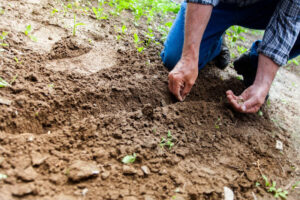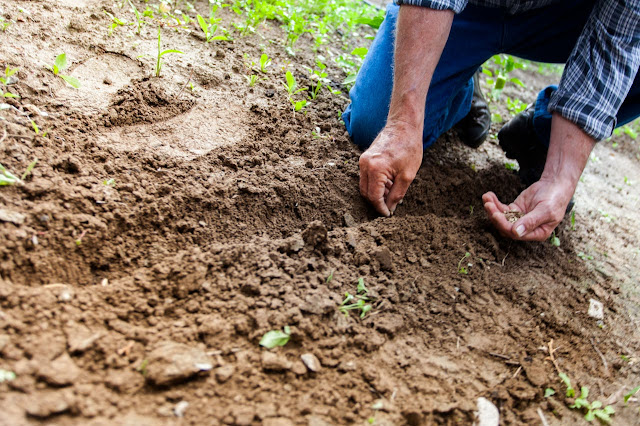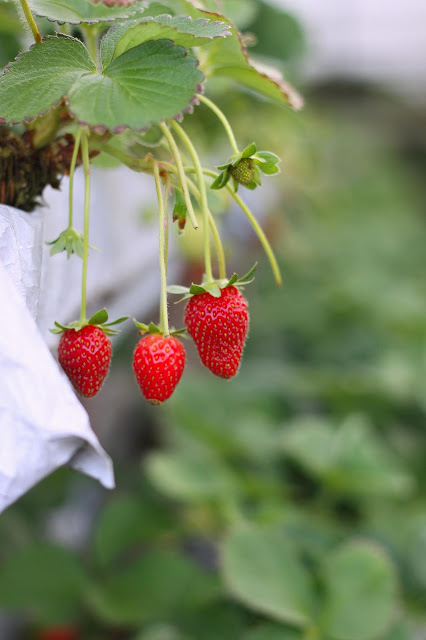
Gardening is more than just a hobby. It is a form of therapy that can improve your mental health in many ways. Whether you have a small balcony garden or a large backyard oasis, gardening can help you cope with stress, anxiety, depression, and other mental health issues. In this article, we will explore the benefits of gardening for your mental health and how you can start your own therapeutic garden today.
How Gardening Improves Your Mental Health
Gardening is a natural way to boost your mood, reduce your stress, and enhance your cognitive function. Here are some of the ways that gardening can improve your mental health:
- Gardening releases endorphins. Endorphins are the chemicals in your brain that make you feel happy and relaxed. Gardening stimulates the production of endorphins by engaging your senses, such as sight, smell, touch, and taste. As you plant, prune, water, and harvest your plants, you experience a sense of satisfaction and accomplishment that lifts your mood and lowers your stress levels.
- Gardening reduces cortisol. Cortisol is the hormone that is released when you are under stress. High levels of cortisol can lead to anxiety, depression, insomnia, and other health problems. Gardening helps you lower your cortisol levels by providing a calming and soothing activity that distracts you from your worries and troubles. As you focus on the present moment and the natural beauty of your garden, you feel more relaxed and peaceful.
- Gardening improves your brain function. Gardening is a form of mental exercise that challenges your memory, attention, and problem-solving skills. Gardening requires you to plan, organize, and execute various tasks, such as choosing the right plants, arranging them in a suitable layout, and maintaining them throughout the seasons. Gardening also stimulates your creativity and imagination, as you design and decorate your garden according to your personal preferences and style. Gardening can help you prevent cognitive decline and improve your mental clarity and concentration.
- Gardening connects you with nature. Nature is a powerful healer that can restore your mental health and well-being. Gardening allows you to connect with nature on a deeper level, as you observe and interact with the plants, animals, and insects that inhabit your garden. Gardening can help you appreciate the beauty and diversity of nature, as well as the cycles and rhythms of life. Gardening can also inspire you to adopt a more eco-friendly lifestyle, as you learn to respect and care for the environment.
How to Start Your Own Therapeutic Garden
If you are interested in starting your own therapeutic garden, here are some tips to help you get started:
- Choose the right location. The location of your garden will depend on the space and resources you have available. You can start a garden in your balcony, patio, backyard, or even indoors. The important thing is to choose a location that is convenient, accessible, and comfortable for you. You want your garden to be a place where you can enjoy and relax, not a place where you feel overwhelmed or frustrated.
- Choose the right plants. The plants you choose for your garden will depend on your personal preferences, as well as the climate and conditions of your location. You can choose plants that are easy to grow and maintain, such as herbs, vegetables, flowers, or succulents. You can also choose plants that have specific benefits for your mental health, such as lavender, chamomile, rosemary, or mint. These plants have soothing and calming effects that can help you cope with stress and anxiety. You can also choose plants that appeal to your senses, such as colorful, fragrant, or edible plants. These plants can stimulate your senses and make your garden more enjoyable and rewarding.
- Choose the right tools and accessories. The tools and accessories you need for your garden will depend on the size and type of your garden. You will need some basic tools, such as a shovel, a rake, a hoe, a watering can, and a pair of gloves. You can also invest in some accessories, such as pots, planters, trellises, stakes, labels, and decorations. These accessories can help you organize and beautify your garden, as well as express your personality and creativity.
- Choose the right time and frequency. The time and frequency you spend on your garden will depend on your schedule and availability. You can spend as little or as much time as you want on your garden, as long as you enjoy it and benefit from it. You can spend a few minutes every day, a few hours every week, or a few days every month on your garden. The important thing is to find a balance between your gardening and your other responsibilities and obligations. You want your garden to be a source of pleasure and relaxation, not a source of stress and pressure.
Conclusion: Gardening for Your Mental Health
Gardening is a wonderful way to improve your mental health and well-being. Gardening can help you release endorphins, reduce cortisol, improve your brain function, and connect you with nature. Gardening can also help you express yourself, discover yourself, and heal yourself. Gardening is not only good for your plants, but also good for your mind. So, what are you waiting for? Start your own therapeutic garden today and reap the benefits of gardening for your mental health.
Click here to learn more.




